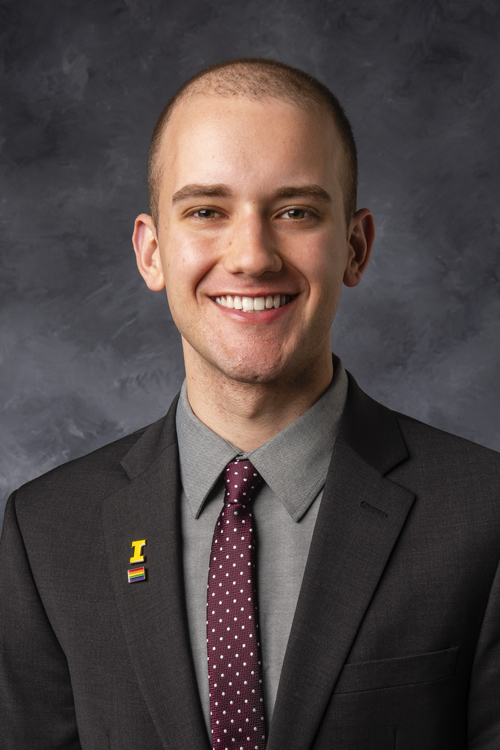
Bernardo Pohl Duarte, Undergraduate student
Examines desirability bias
• Hometown: I was born in Brazil but went to high school in Johnston, IA.
• Faculty mentor/advisor: Paul Windschitl, Professor, Psychological and Brain Sciences
• What is your degree program and expected graduate date? Psychology (BS) – Expected Spring 2020
• Please describe your research: We research the desirability bias, also known as wishful thinking, which describes how when people desire for a certain outcome or event to occur, they tend to overestimate the likelihood that it will happen. My specific research is on different techniques that can reduce, or debias, the wishful thinking effect. This can help people have more realistic expectations and make more accurate predictions about desirable events.
• In simple terms, why does this research matter? People often let their desires for an event inflate their expectations that the event will occur. Importantly, people tend to make decisions based on such expectations. Our research can help people make more accurate predictions of the likelihood of certain outcomes happening, which may lead to better decision making. Some examples of domains in which reducing the wishful thinking effect may have a strong impact are: climate change, testing new medical treatments, legal trials, etc.
• How soon after starting at the University of Iowa were you able to participate in research? I became involved with research during second semester of my Sophomore year. Since then, I have been a part of two labs at the University of Iowa and one at Northwestern University through their Summer Research Opportunities Program (SROP).
• How has being involved in research made you more successful at the University of Iowa? Through my involvement with research, I have learned how challenging the process of conducting research can be. I have also been able to better understand research methodologies and improve my critical thinking when discussing academic papers. These skills have translated well into classroom settings because I am now much more prepared to understand and discuss research findings with peers and faculty. Lastly, these involvements have challenged me to improve my time management skills due to the demands that come with being a full-time student and conducting research.
• What are your career goals and/or plans after graduation? My plan after graduating is to begin a PhD program in Social Psychology. My goal is to become a professor in the field and run a research lab looking at prejudice and stigmatization of minority identities. I hope to develop programs and interventions aimed at reducing inequalities faced by such communities.
Banner location: not on display—
